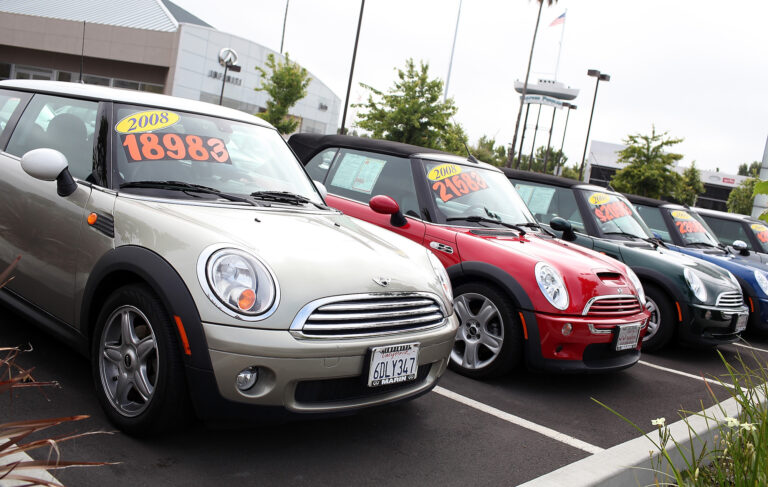Electric Car Brands Singapore: Navigating the Future of Mobility
Electric Car Brands Singapore: Navigating the Future of Mobility cars.truckstrend.com
Singapore, a nation renowned for its progressive urban planning and commitment to sustainability, is rapidly embracing the electric vehicle (EV) revolution. What was once a niche market dominated by a few pioneers has blossomed into a vibrant ecosystem featuring a diverse array of electric car brands. This comprehensive guide delves into the exciting world of electric car brands in Singapore, exploring the market landscape, key players, essential considerations for prospective buyers, and the promising future of sustainable mobility in the Lion City.
The Electrifying Rise of EVs in Singapore
Electric Car Brands Singapore: Navigating the Future of Mobility
The shift towards electric vehicles in Singapore is not merely a global trend; it’s a strategic national imperative. Driven by ambitious targets to phase out internal combustion engine (ICE) vehicles by 2040 and achieve net-zero emissions by 2050, the Singapore government has implemented a suite of incentives and infrastructure developments to accelerate EV adoption. Schemes like the Electric Vehicle Early Adoption Incentive (EEAI), the revised Vehicle Emissions Scheme (VES), and significant investments in public charging infrastructure have made EVs increasingly attractive to Singaporean consumers.
The notoriously high Certificate of Entitlement (COE) system, while still a significant barrier, is partially offset by these green incentives, making the total cost of ownership more competitive for EVs in certain segments. This supportive environment has encouraged a multitude of international and even some regional electric car brands to establish a strong foothold in the Singaporean market, offering consumers an unprecedented range of choices.
Key Electric Car Brands Available in Singapore
The Singaporean EV market is dynamic and diverse, catering to various budgets and preferences. Here’s a look at some of the prominent electric car brands making waves:
Premium & Luxury Segments
- Tesla: Unquestionably the most recognizable EV brand globally, Tesla has a strong presence in Singapore with models like the Model 3 (a popular choice for its performance and tech) and the Model Y (offering more practicality as an SUV). Tesla’s Supercharger network provides a dedicated fast-charging experience.
- Porsche: For those seeking exhilarating performance coupled with electric power, the Porsche Taycan stands out. Available in various trims, including the powerful Turbo S, it offers a true sports car experience with zero emissions.
- Mercedes-EQ: Mercedes-Benz has made a significant push into the EV space with its EQ sub-brand. Models like the EQA (compact SUV), EQB (7-seater compact SUV), EQE (executive sedan), and the flagship EQS (luxury sedan) combine opulent interiors, advanced technology, and refined electric powertrains.
- BMW i: BMW’s "i" sub-brand continues to innovate, offering compelling electric options. The iX3 (SUV), i4 (Gran Coupe), and the groundbreaking iX (SAV) blend BMW’s signature driving dynamics with impressive range and sophisticated design.
- Audi e-tron: Audi’s e-tron lineup brings its renowned quattro all-wheel-drive capabilities to the EV world. Models like the Q4 e-tron (compact SUV), e-tron GT (sporty sedan), and the original e-tron SUV offer a luxurious and capable electric driving experience.
- Polestar: A performance EV brand spun off from Volvo, Polestar offers minimalist design and robust performance. The Polestar 2 (fastback sedan) is a direct competitor to the Tesla Model 3, known for its Google-powered infotainment system and solid build quality.
/GettyImages-603713293-5a027100482c52001ab4901f.jpg)
Mainstream & Volume Segments
- Hyundai: A leader in the mainstream EV market, Hyundai offers popular models like the IONIQ 5 (retro-futuristic design, fast charging) and the Kona Electric (compact, practical, and efficient). Their E-GMP platform is highly regarded for its performance and charging capabilities.
- Kia: Sister brand to Hyundai, Kia has also made significant strides with its EVs. The multi-award-winning EV6 (sleek crossover) shares the same impressive E-GMP platform as the IONIQ 5, offering similar fast-charging and long-range benefits. The Niro EV is another strong contender in the compact SUV segment.
- BYD: Hailing from China, BYD (Build Your Dreams) has rapidly emerged as a global EV powerhouse. In Singapore, models like the ATTO 3 (compact SUV) and the Seal (sporty sedan) offer competitive pricing, good range, and a host of features, making them highly attractive value propositions.
- MG: The British-born, Chinese-owned MG brand has gained traction in Singapore with its affordable and practical EVs. The MG ZS EV (compact SUV) and the MG 4 (hatchback) are popular choices for their accessible price points and decent range, appealing to budget-conscious buyers.
- Volvo: Committed to an all-electric future, Volvo offers compelling EV options that prioritize safety and Scandinavian design. The C40 Recharge (sleek crossover) and the XC40 Recharge (compact SUV) provide a premium yet practical EV experience.
Emerging & Niche Brands
As the market matures, more brands are expected to enter, including other Chinese manufacturers like NIO, Xpeng, and perhaps new European or American startups, further diversifying the choices for Singaporean consumers.
Factors to Consider When Choosing an EV Brand in Singapore
Purchasing an EV in Singapore involves unique considerations beyond just the car itself.
-
Price and Total Cost of Ownership:
- COE: This remains the single largest variable. EV prices quoted are often without COE, which can easily double the cost.
- OMV (Open Market Value): This is the base cost of the car.
- VES Rebates: Singapore’s Vehicle Emissions Scheme offers significant rebates (up to S$25,000 for A1 band EVs) which can substantially lower the OMV.
- Road Tax: EVs often have lower road tax compared to ICE equivalents due to different calculation methods.
- Charging Costs: Electricity is generally cheaper per km than petrol, leading to lower running costs.
- Maintenance: EVs typically have fewer moving parts, potentially reducing maintenance costs.
-
Range and Charging Infrastructure:
- Range Anxiety: While Singapore is small, daily range requirements vary. Consider your commute and typical usage. Most modern EVs offer ranges well exceeding daily needs.
- Public Charging: Singapore’s public charging network (SP Group, BlueSG, Charge+ etc.) is expanding rapidly. Check charger availability near your home, workplace, and frequent destinations.
- Home Charging: If you have landed property or a private car park, installing a home charger (wallbox) offers the ultimate convenience. For HDB/condo residents, reliance on public charging or shared facilities is more common.
-
Performance and Driving Experience:
- Instant Torque: EVs offer instant acceleration, which can be thrilling.
- Quiet Operation: The silent drive is a major selling point, contributing to a more relaxed journey.
- Handling: Battery placement often leads to a low centre of gravity, improving handling.
- Regenerative Braking: Learn to use regenerative braking to maximize efficiency and extend range.
-
Technology and Features:
- Infotainment: EVs often feature large touchscreens and advanced connectivity (Apple CarPlay, Android Auto, built-in navigation).
- Driver-Assistance Systems: Many EVs come equipped with advanced safety features like adaptive cruise control, lane-keeping assist, and automatic emergency braking.
- Software Updates: Over-the-air (OTA) updates are common, allowing your car to improve over time.
-
After-Sales Service and Warranty:
- Dealer Network: Ensure the brand has a reliable service network in Singapore.
- Battery Warranty: Check the warranty period and conditions for the battery, which is the most expensive component. Typically 8 years/160,000 km.
- Parts Availability: Ensure spare parts are readily available.
-
Brand Reputation and Resale Value:
- Established Brands: Brands with a longer history in Singapore might offer more predictable resale values.
- Emerging Brands: While newer brands might offer great value upfront, their long-term resale value is less certain.
Navigating the EV Purchase Process in Singapore
- Research and Shortlist: Identify brands and models that fit your budget, lifestyle, and range requirements.
- Understand Incentives: Familiarize yourself with the VES scheme, EEAI, and any other current government grants that can reduce the upfront cost.
- Test Drive: Always test drive multiple models to get a feel for their driving dynamics, comfort, and features. Pay attention to acceleration, braking, and cabin noise.
- Charging Assessment: Evaluate your daily charging needs. Can you charge at home/work? Are there sufficient public chargers on your usual routes?
- Financing and Insurance: EVs might have different financing options or insurance premiums. Consult with dealers and insurance providers.
- COE Bidding: Be prepared for the COE bidding process, which significantly impacts the final price. Dealers usually handle this, but understanding the market trends is beneficial.
- Vehicle Registration and Delivery: Once the COE is secured, the dealer will handle the registration and delivery process.
Challenges and Solutions for EV Adoption in Singapore
While the future is bright, there are still hurdles to overcome:
- High Upfront Cost: Despite incentives, the initial purchase price, especially with high COEs, remains a significant barrier for many.
- Solution: Continued government incentives, wider availability of more affordable EV models (especially from Chinese brands), and potentially different COE categories for EVs in the long run.
- Charging Infrastructure Gaps (Especially HDB): While expanding, convenient charging in older HDB estates and some condominiums remains a challenge.
- Solution: LTA’s target of 60,000 charging points by 2030, accelerated deployment of chargers in HDB car parks (EV-Ready programme), and innovative charging solutions like mobile charging services.
- Range Anxiety (Perception vs. Reality): Some drivers still worry about running out of charge, even though most EVs offer sufficient range for Singapore’s compact size.
- Solution: Education campaigns, real-world range testing, and the increasing density of fast chargers that can quickly top up batteries.
- Battery Degradation Concerns: Worries about battery lifespan and replacement costs.
- Solution: Long battery warranties (typically 8 years/160,000 km), advancements in battery technology, and the development of second-life applications for EV batteries.
Indicative Price Table: Electric Car Brands & Models in Singapore (Subject to COE Volatility)
Disclaimer: Prices for electric vehicles in Singapore are highly volatile and significantly impacted by the prevailing Certificate of Entitlement (COE) premiums, which fluctuate every two weeks. The prices below are indicative ranges and approximate starting points, inclusive of an assumed average COE (Cat B/E), VES rebates, and GST. They do not include optional features or accessories. Always consult official brand dealerships for the most current and accurate pricing.
| Brand | Model | Body Type | Indicative Starting Price (S$) | Indicative Full Price Range (S$) |
|---|---|---|---|---|
| BYD | ATTO 3 | Compact SUV | $180,000 | $180,000 – $200,000 |
| Seal | Sedan | $200,000 | $200,000 – $250,000 | |
| Hyundai | Kona Electric | Compact SUV | $190,000 | $190,000 – $220,000 |
| IONIQ 5 | Crossover | $220,000 | $220,000 – $280,000 | |
| Kia | Niro EV | Compact SUV | $195,000 | $195,000 – $225,000 |
| EV6 | Crossover | $230,000 | $230,000 – $300,000 | |
| MG | ZS EV | Compact SUV | $170,000 | $170,000 – $190,000 |
| MG 4 | Hatchback | $175,000 | $175,000 – $200,000 | |
| Polestar | Polestar 2 | Fastback | $240,000 | $240,000 – $300,000 |
| Tesla | Model 3 | Sedan | $250,000 | $250,000 – $350,000 |
| Model Y | SUV | $260,000 | $260,000 – $380,000 | |
| Volvo | XC40 Recharge | Compact SUV | $250,000 | $250,000 – $300,000 |
| C40 Recharge | Crossover | $260,000 | $260,000 – $310,000 | |
| Audi | Q4 e-tron | SUV | $280,000 | $280,000 – $350,000 |
| e-tron GT | Sedan | $450,000 | $450,000 – $600,000+ | |
| BMW | iX3 | SUV | $290,000 | $290,000 – $350,000 |
| i4 | Gran Coupe | $300,000 | $300,000 – $400,000 | |
| Mercedes-EQ | EQA | Compact SUV | $280,000 | $280,000 – $350,000 |
| EQE | Sedan | $380,000 | $380,000 – $500,000+ | |
| Porsche | Taycan | Sports Sedan | $500,000 | $500,000 – $800,000+ |
Note: The prices listed above are estimates for entry-level variants and can vary significantly based on trim levels, optional features, prevailing COE prices, and specific promotions from dealerships.
Frequently Asked Questions (FAQ) about Electric Car Brands in Singapore
Q1: Are electric cars really cheaper to run in Singapore?
A1: Generally, yes. Electricity costs per kilometer are lower than petrol. Additionally, EVs benefit from lower road tax and potentially reduced maintenance costs due to fewer moving parts compared to ICE cars.
Q2: How long does it take to charge an EV in Singapore?
A2: Charging times vary significantly based on the charger type and car’s battery size:
- Slow AC (2.3kW, household socket): 20-40+ hours for a full charge.
- Fast AC (7kW-22kW, public/home wallbox): 4-10 hours for a full charge.
- DC Fast Charging (50kW-350kW, public stations): 20-60 minutes for an 80% charge.
Q3: What is the average range of EVs available in Singapore?
A3: Most new EVs in Singapore offer a WLP (Worldwide Harmonized Light Vehicles Test Procedure) range of 400km to 600km on a full charge. In real-world Singapore driving conditions, this typically translates to 300km to 500km, which is more than sufficient for daily commutes.
Q4: How does COE affect EV prices in Singapore?
A4: COE is a major component of the final car price in Singapore, often representing 30-50% or more of the total cost. EVs compete for COE in the same categories as ICE cars (primarily Category B and E for most models), meaning their prices are heavily influenced by COE premiums, which can fluctuate significantly.
Q5: What incentives are available for buying an EV in Singapore?
A5: The main incentives are:
- Vehicle Emissions Scheme (VES): Offers rebates (up to S$25,000 for A1 band EVs) based on the vehicle’s emissions.
- EV Early Adoption Incentive (EEAI): Provides a 45% rebate on the Additional Registration Fee (ARF), capped at S$15,000.
- These incentives are stackable, providing substantial savings on the OMV.
Q6: Can I install a home charger if I live in an HDB flat or condominium?
A6: For HDB flats, it’s generally not permitted to install private chargers in common car parks. The government is rolling out the EV-Ready HDB programme to install charging points in all HDB car parks by 2030. For condominiums, it depends on the MCST rules and infrastructure. Many newer condos are EV-ready, while older ones may require approval and upgrades.
Conclusion: The Electric Future is Now
The landscape of electric car brands in Singapore is rapidly evolving, offering consumers an unprecedented array of choices from budget-friendly options to high-performance luxury vehicles. Singapore’s commitment to sustainability, coupled with government incentives and a growing charging infrastructure, positions it as a leader in EV adoption in Southeast Asia. While challenges such as high upfront costs and charging accessibility for some residents remain, ongoing initiatives and technological advancements are steadily paving the way for a smoother, greener transition. As more brands enter the market and battery technology improves, electric vehicles are not just an alternative but increasingly the preferred mode of transport, driving Singapore towards a cleaner, quieter, and more sustainable future.





